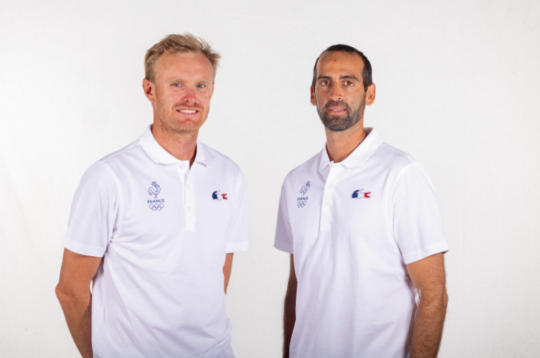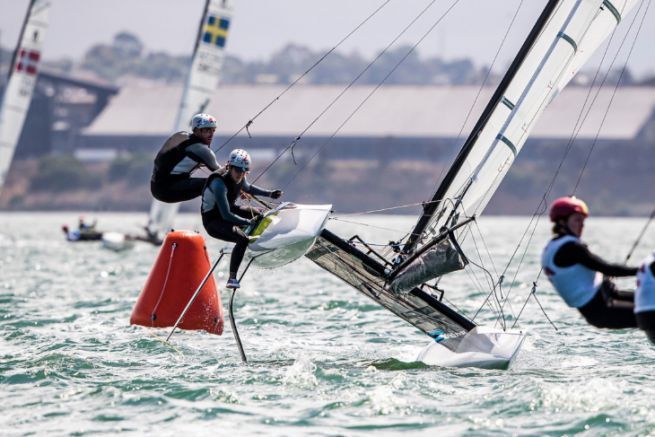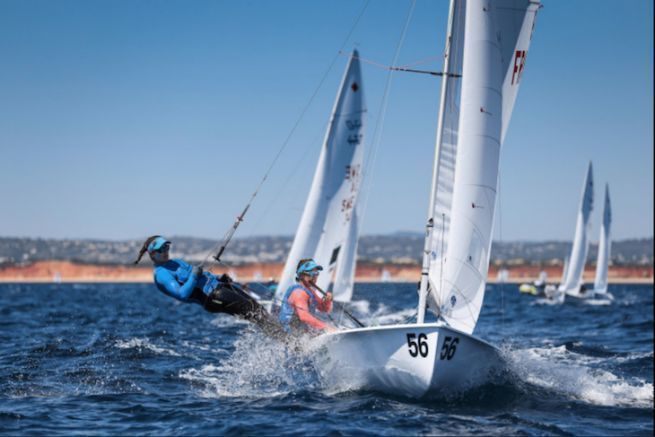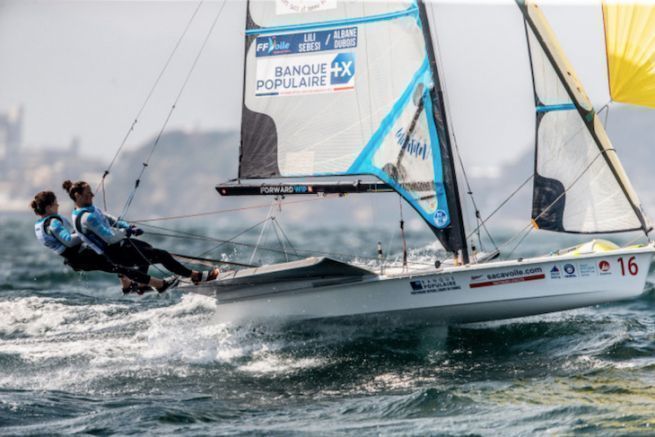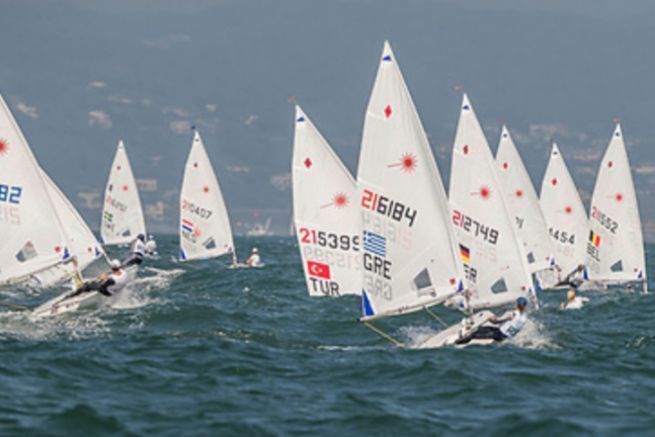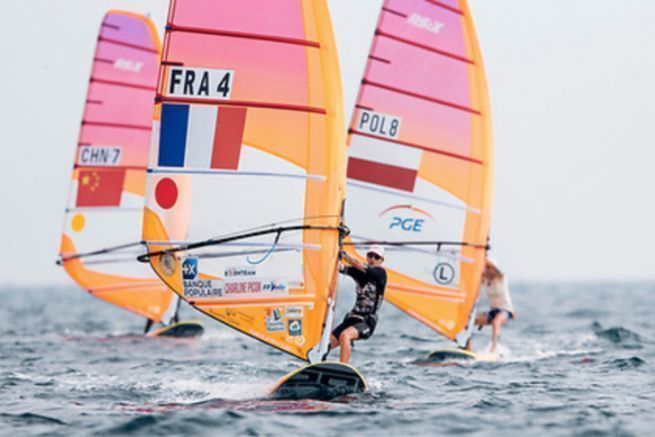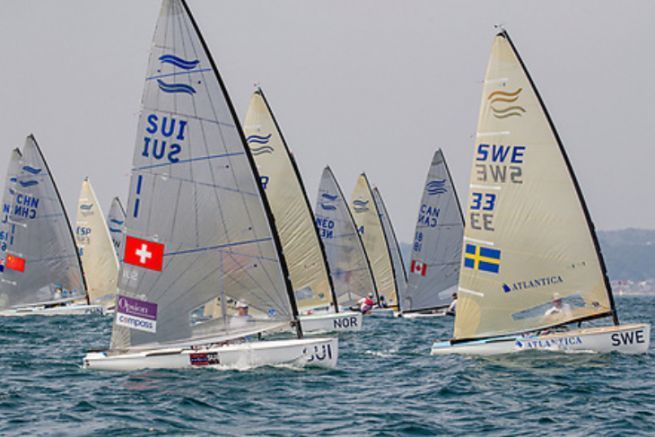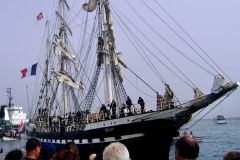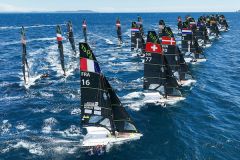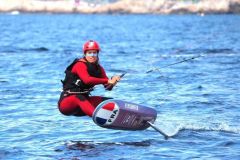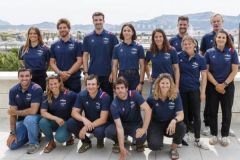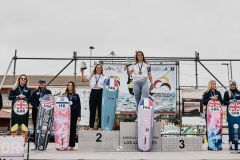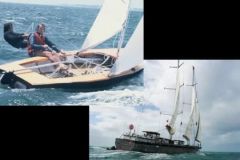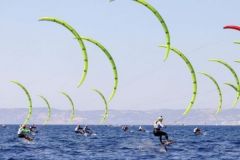A universal support
The Laser is a small one-design dinghy of 4.23 m in length and a total weight of 59 kg. It was created in 1969 by the Canadians Bruce Kirby and Ian Bruce. Easy to handle, simple to set up and to steer, it is one of the most practiced disciplines in the world! Unlike the other supports, it has only one mainsail, which also makes it accessible to most people. The boats are all identical, so it is the helmsman's talent that makes the difference.
"It is a universal discipline for our sport, very easy to practice in sailing schools. Someone who wants to discover sailing can do it on an Olympic Games boat." explains Guillaume Chiellino, director of the French Olympic sailing team.
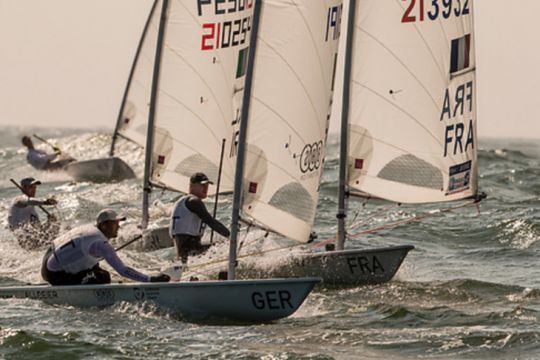
Two categories: Laser Standard and Laser Radial
This discipline is practiced in single-handed - men's (Laser) and women's (Laser Radial) categories. While the hull is the same for all, the women's boats have a slightly shorter and more flexible mast and 18% less sail area than the men. Visually, the Laser Radial class is distinguished from the Laser Standard by the red diamond on the mainsail of the boats used in the women's event.
The Standard Laser (now known as the Ilca 7) has been used in the Olympic Games since 1996, while the Laser Radial (whose new name is the Ilca 6) made its debut at the Beijing Games in 2008.
In Tokyo 2020, there will be 34 male and 44 female competitors in the event. All the athletes will sail in one-design classes with boats built and supplied by the same manufacturer.
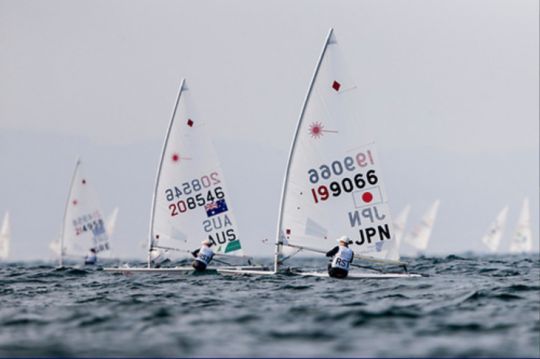
Titles of Olympic champions
Two sailors hold the title of double Olympic medalist in the Laser Radial class. Lijia Xu (China) won Bronze in Beijing 2008 and Gold in London 2012. Marit Bouwmeester (Netherlands) won silver in London 2012 and gold in Rio 2016. Qualified for Tokyo 2020, the latter could perhaps become triple medalist.
In Laser, the Brazilian Robert Scheidt is the most successful Olympic sailor. He is one of only three athletes to have won 5 Olympic medals in sailing, including three in Laser: gold in Atlanta in 1996, silver in Sydney in 2000 and gold in Athens in 2004. After two campaigns in Star (2008 and 2012), the Brazilian returns to Tokyo on his favorite support. If he finishes on the podium this year, he will become the most successful Olympic sailor in history.
Sir Ben Ainslie is also the holder of 5 Olympic titles, including two in the Laser class. The Slovenian Vasilij bogar has also made a name for himself in the Laser class with bronze and silver medals in 2004 and 2008. Finally, Pavlos Kontides made history by becoming the first Cypriot athlete to win an Olympic medal, silver in London in 2012.
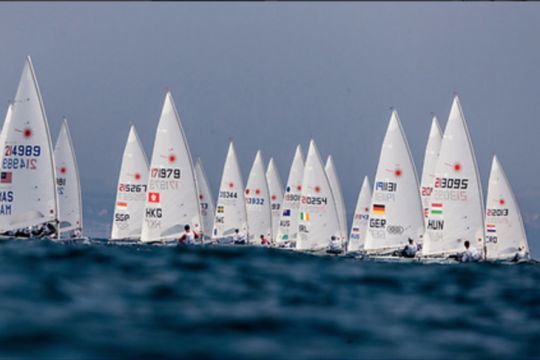
Bizuth and Olympic regular for the French team
In the women's category, Marie Bolou - 29 years old - from Brest will represent France. After a disappointment in 2016, where she missed the qualification for the Rio games, the young woman who trains at the French pole, will be back in 2020 to make her first Games.
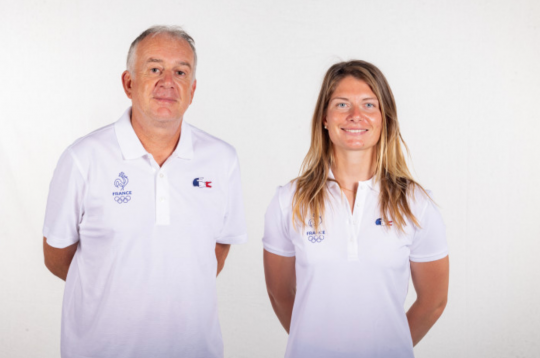
On the men's side, Jean-Baptise Bernaz, who will participate in his 4th Olympic Games campaign after Beijing in 2008 (8th), London in 2012 (10th) and Rio in 2016 (5th), needs no introduction. Although he has never won an Olympic medal, he has a great deal of experience in this sport and is hoping to win the first Olympic medal for the French Laser.
